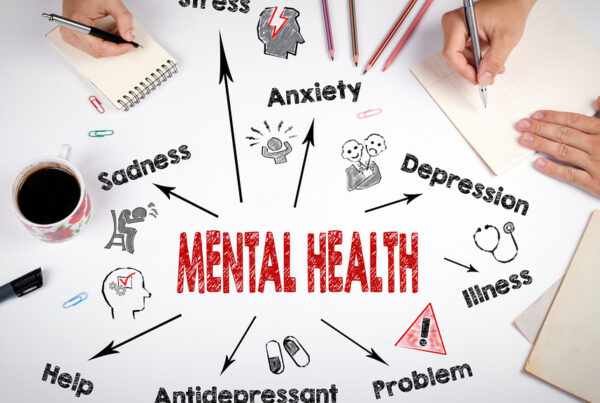Taxi drivers often work long hours sitting behind the wheel, which can lead to various health problems. But there are ways to combat these issues and maintain a healthy lifestyle. Regular exercise, eating a balanced diet, and taking breaks to stretch and move around can all help.
In addition to the in-vehicle exercises we mentioned earlier, there are many other ways to incorporate physical activity into your daily routine. For example, taking a brisk walk during your lunch break or after work can help improve your cardiovascular health and boost your mood. Joining a local gym or fitness class can also be a great way to stay active and meet other people in your community.
As for your diet, it’s important to focus on eating nutrient-dense foods that provide you with sustained energy throughout the day. This might include foods like whole grains, lean proteins, fruits, and vegetables. It’s also important to stay hydrated by drinking plenty of water throughout the day.
Lastly, taking regular breaks to stretch and move around can help alleviate stiffness and soreness from sitting for long periods of time. Consider taking a short walk or doing some simple stretches every hour or so to keep your body feeling limber and energized.
Overall, prioritizing your health and wellness is essential for taxi drivers to stay safe, alert, and focused on the road. By making small changes to your daily routine, you can enjoy a healthier, more balanced lifestyle.
Exercises useful for every driver:
Regular exercise is crucial for maintaining good health, and the benefits are numerous. As a taxi driver, it’s important to prioritize your health and wellbeing by incorporating physical activity into your daily routine.
The recommended amount of exercise for adults is at least 150 minutes of moderate aerobic activity per week, along with strength training exercises at least two days per week. This may sound like a lot, but it’s important to remember that exercise doesn’t have to be overly strenuous or time-consuming. Even short bouts of activity throughout the day can add up and make a big difference in your overall health.
In addition to the physical benefits, regular exercise can also improve your mental health and help you manage stress. As a taxi driver, your job may be stressful at times, and exercise can be a great way to unwind and clear your mind.
It’s important to make exercise a priority in your life, even if it means making some adjustments to your schedule or routine. Remember, your health is your most important asset, and taking care of yourself will allow you to perform better on the job and enjoy a higher quality of life overall.
A study by Kate E Murray, Abdimalik Buul, Alyson M Cavanaugh and Harvey Checkoway of the Health Promotion International in relation with Oxford University, investigated the occupational health risks of a taxi driver. The research conducted analysed that:
| Numerous health concerns that drivers attributed to their occupation, including chronic pain, sleep deprivation, cardiovascular disease, diabetes, kidney disease and eye problems, as the most common. Participants offered ideas for health interventions that include workplace reform and driver education. Quantitative data indicate that 44% of drivers reported their health as ‘fair’ or ‘poor’.
Drivers were more likely to report musculoskeletal pain, less sleep, more fatigue, and less physical activity as compared to non-drivers. The research provides data to inform targeted health interventions that support the health and safety of taxi drivers. Most common denominator has been failure to keep health check and maintain healthy balance of work and exercise. (Source: https://academic.oup.com/) |
So, how do you promote your health benefits. To get you started here are some simple exercises you can do outside of your vehicle:
- Take a short walk down the road.
- Walk up and down sets of stairs.
If you want to increase your exercise; you could try these moves that’ll make you breathe hard and fast:
- Jogging on the spot
- Star jumps.
- Shoulder circles
- Side-to-side leaps
It’s also important to include strength exercises. These are great for building stronger bones and to burn calories:
- Push-ups on a short wall
- Squats
- Sit ups.
In-vehicle exercises can help taxi drivers stay active and healthy, even on days when the weather makes it difficult to get outside. Here are a few exercises that can be done while sitting in the driver’s seat:
- Neck rotations: Slowly rotate your head to the left and then to the right, making a full circle. Repeat this movement 10 times.
- Shoulder shrugs: Raise your shoulders up towards your ears, hold for a few seconds, and then relax. Repeat this movement 10 times.
- Abdominal contractions: Tighten your abdominal muscles and hold for 5-10 seconds before relaxing. Repeat this movement 10 times.
- Leg lifts: Lift one leg up off the ground and hold for a few seconds before lowering it back down. Repeat this movement 10 times on each leg.
- Arm stretches: Reach your left arm across your chest and hold it with your right hand, stretching your left shoulder. Hold for 10-15 seconds before switching sides.
Remember to always use caution while driving and avoid any movements that could distract from the task of driving. Incorporating these simple exercises into your daily routine can help prevent headaches, neck tightness, and back pain while promoting a healthier lifestyle.
Useful tips in the improvement of your health:
Making healthier food choices can not only benefit your physical health but also your mental well-being.
Starting your day with a healthy breakfast such as fruit or oatmeal can give you the energy you need to tackle the day ahead. Preparing your own lunch can also save you money while allowing you to control the ingredients and portion sizes.
When it comes to lunch and dinner, incorporating whole grains and vegetables can provide important nutrients and fibre. Drinking water throughout the day can also help you stay hydrated and alert, especially if you’re on the road.
On the other hand, fast food can be high in unhealthy ingredients like saturated fat, sugar, and salt, which can contribute to health problems over time. It’s best to limit your consumption of junk food like burgers, pizza, crisps, cake, and chocolate. Drinking fizzy drinks and adding sugar to your tea or coffee can also add unnecessary calories and contribute to weight gain.
In addition, eating late at night can disrupt your body’s natural digestion process, so it’s best to avoid eating too close to bedtime.
Overall, making small changes to your diet can have a big impact on your health and well-being. Remember to focus on whole, nutrient-dense foods and stay hydrated with water throughout the day.
The short- and long-term benefits:
Making a commitment to regular exercise and healthier eating habits can have numerous benefits for both your physical and mental well-being.
As mentioned, regular exercise can help increase energy levels, improve concentration, and promote better sleep. This is because exercise can help release endorphins, the “feel-good” chemicals in your brain, which can improve your mood and reduce stress and anxiety.
In addition to the immediate benefits, regular exercise and healthier eating habits can also lead to long-term health benefits. Exercise can help you lose excess body fat, build lean muscle, and lower your risk of developing chronic diseases such as heart disease, diabetes, and certain types of cancer.
By adopting healthier habits over time, you’ll likely find that it becomes easier to maintain a healthy lifestyle. This can be especially true if you find an exercise routine and healthy eating plan that you enjoy and that works for your lifestyle and schedule.
Remember that every small step you take towards a healthier lifestyle is a step in the right direction. Whether it’s taking a daily walk, incorporating more vegetables into your meals, or cutting back on sugary drinks, every change you make can have a positive impact on your health and well-being.
Keeping track of your progress and maintaining a motivated attitude:
Here are a few more tips that taxi drivers can use to maintain a healthy lifestyle:
- Take regular breaks: Sitting for extended periods of time can be detrimental to your health. Taking regular breaks to stretch your legs and move around can help reduce the negative effects of sitting.
- Pack healthy snacks: Packing healthy snacks such as fruit, nuts, or whole grain crackers can help you avoid the temptation of fast food and vending machines.
- Get enough sleep: Getting enough sleep is crucial for overall health and well-being. Try to aim for at least 7-8 hours of sleep per night.
- Practice stress management: Driving can be a stressful job, so it’s important to have strategies in place to manage stress. This could include deep breathing exercises, meditation, or listening to calming music.
- Stay hydrated: Drinking enough water throughout the day can help keep you alert and focused. Try to aim for at least 8 cups of water per day.
By incorporating these tips into their daily routine, taxi drivers can improve their health and well-being while on the job. Sharing these tips with colleagues can also help promote a culture of health and wellness within the taxi driving community.
In summary taking care of one’s physical and mental health is crucial, especially in high-stress environments such as those experienced by drivers and fleet operatives, as well as all associates of the taxi and private hire industry. It is essential to prioritize self-care to ensure that you can continue to fulfil your employment duties and maintain a good quality of life.
Having policies in place that promote positive mental health and wellbeing is an excellent step that fleet operatives can take to support their drivers. Encouraging fitness-related activities, such as basic exercises with the vehicle, can be a practical way to promote physical health.
Ultimately, it is up to everyone to take responsibility for their health and make the necessary changes to ensure they are physically and mentally fit to perform their job duties. This may include seeking professional help when needed, making time for self-care, and prioritizing healthy habits such as regular exercise and a balanced diet.
The importance of health and wellbeing is only the first step. To truly make a difference, we must take action and make positive changes in our lives. It is up to each individual to prioritize their health, take ownership of their wellbeing, and make the necessary changes to support a healthy and balanced lifestyle. It may not always be easy, but the benefits are worth it in the long run. Remember, the choice is yours, and it is never too late to start taking care of yourself.


